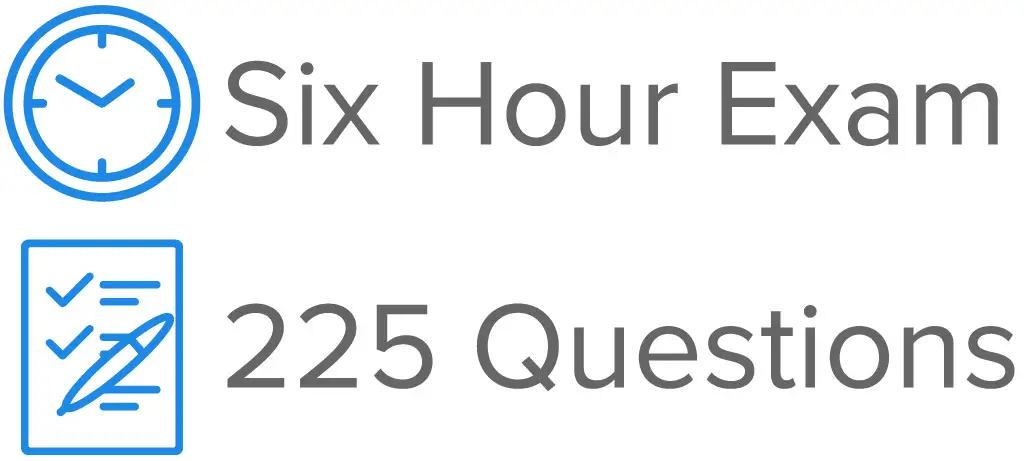Having a pharmacy degree is the first of many requirements to practice pharmacy in the United States. Pharmacy graduates must also pass the North American Pharmacist Licensure Examination® (NAPLEX®), administered by the National Association of Boards of Pharmacy® (NABP®). Though it is only one component of the licensure process, it is used to evaluate a candidate's general pharmacy knowledge. If you are wondering what is on the NAPLEX exam and how to prepare for it, continue reading.
Why Take NAPLEX and Who Can Take It?
Passing the NAPLEX is a prerequisite for obtaining a pharmacy license. To take the NAPLEX, you must be a graduate of a pharmacy school accredited by the Accreditation Council for Pharmacy Education (ACPE) or have earned your Foreign Pharmacy Graduate Examination Committee® (FPGEC®) Certification. You must also meet the eligibility requirements of the state or jurisdiction where you want to practice as a pharmacist.
What is on the NAPLEX Exam?
The purpose of the NAPLEX is to determine whether candidates possess the necessary knowledge, judgment, and skills to begin working as a pharmacist. The NAPLEX Content Domains offer a “blueprint” of the topics on the exam. There are five fundamental areas covered.
| Content Domain | % of Test | |
|---|---|---|
| 1. Foundational Knowledge for Pharmacy Practice | 25% | |
| 2. Medication Use Process (Prescribing, Transcribing and Documenting, Dispensing, Administering, and Monitoring) |
25% | |
| 3. Person-Centered Assessment and Treatment Planning | 40% | |
| 4. Professional Practice | 5% | |
| 5. Pharmacy Management and Leadership | 5% | |
Is the NAPLEX Hard?
One of the most commonly asked questions is, "How difficult is NAPLEX?" Each student's aptitude varies, making this a very subjective question. The NAPLEX covers material learned over the entire pharmacy school curriculum - not just pharmacotherapy. Some students may find the material simple but the exam preparation challenging, or vice versa. NAPLEX is a high-stakes exam, and if you want to practice as a pharmacist in the United States, you must pass it. The NAPLEX pass rate has decreased in recent years. The 2023 NAPLEX pass rate for graduates of ACPE-accredited pharmacy schools on their first attempt was 77.5%. When all test attempts were included, the pass rate in 2023 was 75.7%.
NAPLEX Exam Format and Structure
To do well on the NAPLEX, you must first understand what you are up against. The NAPLEX is administered on a computer at a testing center. It is a six-hour exam with 225 questions. Only 200 questions are used to determine your result; 25 questions have no bearing on your result and are merely experimental. It is impossible to determine which questions are experimental and which are not, so candidates are advised to do their best on every question. If you want to learn more about NAPLEX scoring, read our NAPLEX scoring guide.

It is essential to understand how to respond to the questions on the exam. A scenario-based format is used to ask the majority of the questions. You will need to consult a patient profile or medical record for the data provided to analyze and respond to the questions appropriately asked. You may be asked to scroll through the profiles or medical records so that nothing is missed that could be used as a source of information. If you haven't finished scrolling, you won't be able to move on to the next question. These questions are interspersed with stand-alone questions, independent of scenarios, and can be answered using the information in the question. You cannot skip a question; you must respond to each one in the order in which it is asked. Once you have confirmed your selection and moved on to the next question, you cannot go back and change your answers.
You are allowed two optional 10-minute breaks during the test. When it's time for a break, the computer will remind you at predetermined intervals.
The table below describes each question type and how to answer them to help you better prepare.
| Format | Required Response |
|---|---|
| Multiple-Choice Question | Select the one best answer. |
| Multiple-Response Question | Select all that apply. |
| Constructed-Response Question | The answer must be numeric and adhere to the rounding instructions provided in the question. |
Tips for Passing the NAPLEX on the First Attempt
To prepare for the NAPLEX effectively, you must know what to study, how to study, and have a comprehensive study plan. Listed below are a few study tips that may aid in your exam preparation.
The first step is to be familiar with the test's content. The second step is to develop an exam strategy for the NAPLEX. Candidates who have practiced under the time constraints of the actual exam will have a good idea about how much time to devote to each question in order to finish all 225 questions. They manage their time well. The third component, which is often overlooked, is applying what you have learned in actual clinical situations. It requires out-of-the-box thinking to apply your knowledge to clinical scenarios and select the "most correct" answer.
We suggest that you start studying at least six months before your test. Use the following extra tips to get the most out of your studies:
- Use NAPLEX online video lectures to help you remember what you have learned in school.
- Learn your brand and generic drug names.
- Learn how to answer NAPLEX questions and what they look like.
- Math is a subject that will appear on your exam, so review it thoroughly. Because you have a time limit, daily math practice will improve your time management so that you don't spend too much time on math problems during your exam.
- Use an online study platform with performance tracking features to identify your areas of weakness and improve.
Check out our NAPLEX study guide for tips on how to make the most of your study time and ace your exam.
Frequently Asked Questions (FAQs)
What should you bring on exam day?
Arrive at least 30 minutes in advance of your scheduled appointment to complete check-in procedures. You must present one form of identification to gain admission to the testing center:
To find out more about what to expect on test day, read our article on the NAPLEX registration process and eligibility requirements for the exam.
What happens if you fail the NAPLEX?
If you fail the NAPLEX, you must wait 45 days before attempting it again. If you fail the NAPLEX three times within a 12-month period, you cannot retake it until 12 months have passed since your initial attempt. You can take the NAPLEX a maximum of five times.
How many times can you take the NAPLEX in a year?
You can take the NAPLEX three times a year.
When should I take a NAPLEX practice test?
Practicing with exam-style questions is essential. Practice tests are a good way to assess your knowledge, identify topics for remediation, and gauge your timing. Access to a NAPLEX assessment test, a practice exam that could aid in your exam preparation, is available through the UWorld RxPrep QBank. If you plan to take a practice test, it is best to do so at least 2 weeks before your planned exam date, so you will have time to brush up on topics you found difficult. It is recommended that you reschedule your exam if you perform poorly on a practice test.
Can I use a calculator on the NAPLEX exam?
Yes, an on-screen calculator can be activated for use during the exam. It may be set to scientific or 5-function mode. You may ask the Pearson VUE staff for a handheld calculator, which will be 5-function only. You cannot bring your own personal calculator into the exam.
Should I take NAPLEX or MPJE first?
Many people prefer to take NAPLEX before the Multistate Pharmacy Jurisprudence Examination® (MPJE®), a pharmacy law exam created by NABP to determine eligibility for licensure in the United States, because it covers more material. Another reason for taking the NAPLEX first is that you have likely recently completed clinical rotations. It’s easier to study for the NAPLEX when the content is fresh in your memory.
Read More About the NAPLEX
Are you planning to take the NAPLEX soon? Here is our article with all the details that you will need about NAPLEX registration, eligibility, and cost.
NAPLEX Study GuideLooking for expert advice to help you become a certified pharmacist? Check out our comprehensive study guide and other resources for more information.
NAPLEX Scoring GuideInterested in how the NAPLEX is scored? Here is an easy-to-follow guide to NAPLEX scoring to assist you in developing an effective study schedule.
NAPLEX BlueprintAre you looking for the NAPLEX Blueprint? The article lists the NAPLEX Competency Statements and exam topics you need to be familiar with to ace the exam.



